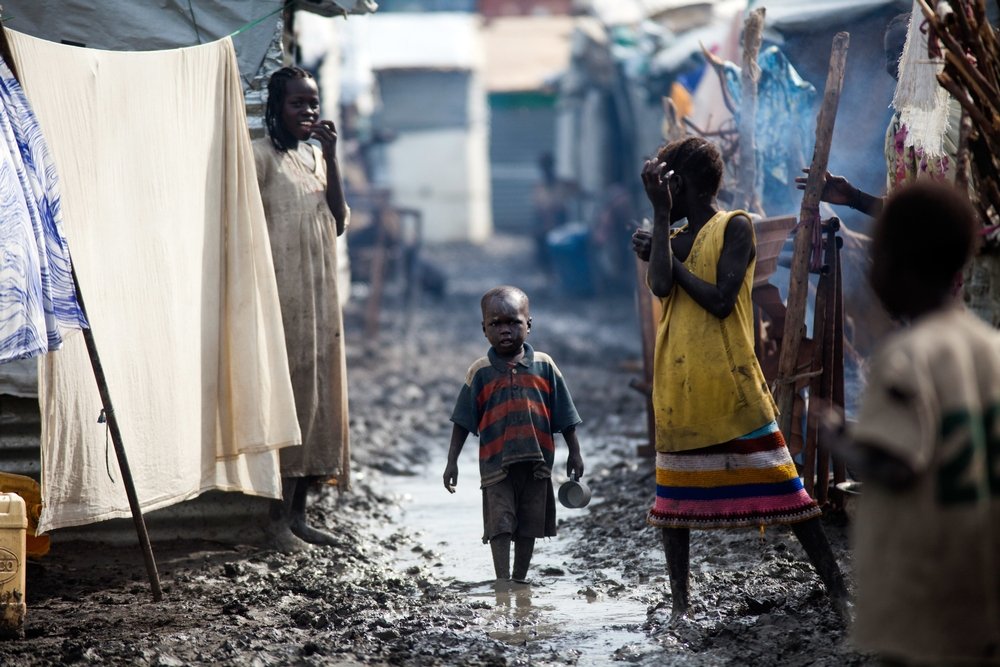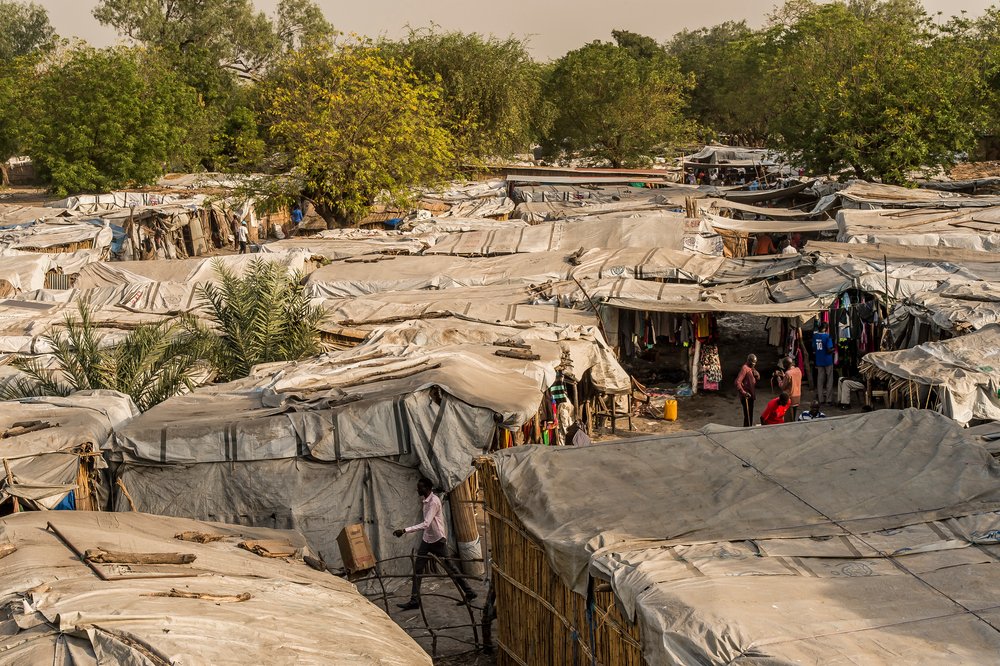Médecins Sans Frontières has been operating in the area that now constitutes South Sudan for more than 30 years, responding to conflicts, neglected diseases and assisting with healthcare infrastructure.
Conflict response
South Sudan gained independence from Sudan in 2011 as the outcome of a 2005 peace deal that ended Africa’s longest civil war. However, since December 2013, conflict in South Sudan has resulted in extreme violence, mass displacement, and the deaths of tens of thousands of people.

A child walks on mud and urine next to the latrines in the Protection of Civilians (PoC) site in Malakal, one of the most crowded PoC camp in South Sudan. In some areas, the density in this camp is around 9 square metres per person, which is significantly below UN standards (30 square metres per person). © Gonzalez Farran / MSF
Medical care is practically non-existent for people living in remote areas of South Sudan, even those spared from much of the violence associated with the war. We run hospitals and clinics and support existing state facilities, with particular focus on maternal, paediatric and neonatal care, and outbreak response. MSF also set up a system in which South Sudanese staff travel with displaced people to provide medical care, including for victims of sexual violence.
Malaria is one of the leading causes of illness and death in South Sudan, especially among children. In cooperation with the Ministry of Health, MSF teams assist in outbreak response, mass vaccination campaigns, and direct treatment. We train community healthcare workers, run outreach and preventive activities such as vaccination campaigns. MSF staff respond to cholera outbreaks, by setting up treatment centres and field hospitals, and support remote communities with decentralised care.
Access to health care is extremely limited in South Sudan, and MSF's hospital in Old Fangak is often the only place people in the region can receive treatment for serious medical conditions. Patients often have to walk for several hours on foot, and travel through harsh weather to reach the hospital from remote villages. The distance and long journey makes it especially difficult for patients with emergency needs, including women with complications during childbirth.
MSF staff carry out emergency nutritional interventions in response to reports of alarming levels of malnutrition, especially in Mayendit and Leer counties. We also treat the parasitic disease visceral leishmaniasis (also known as kala azar), which is transmitted by sandflies and has a 95% mortality rate if left untreated.

The small rural village of Old Fangak has become a refuge for thousands of people fleeing fighting along the Nile since 2014. Despite the many challenges that patients and medical workers face in this environment, the hospital here remains the best hope for many people with serious conditions. © Noy / MSF
MSF continues to provide healthcare to people within United Nations Protection of Civilians (PoC) sites. These sites were set up as a temporary solution for people fleeing violence in December 2013, but in the years since, hundreds of thousands remain trapped in the hostile camps, exposed to poor sanitation and hazardous living conditions.
MSF staff provide medical care, surgical services, and support for victims of sexual and gender-based violence.
Find out more about South Sudan